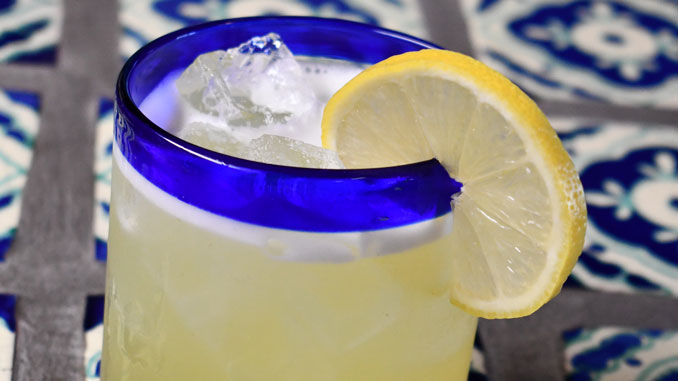
Not to be confused with tequila, mezcal is a smokey liquor used to create cocktails with many flavors, from earthy to floral to fruit-forward. And while many think of mezcal as a type of tequila, it’s actually the other way around. Not all mezcals are tequila, but all tequila is mezcal. “The main difference between tequila and mezcal is tequila is always made from blue agave that is steamed or roasted to give it a clean, smooth, sweet flavor and mezcal is made with many varieties of agave and roasted in underground ovens, giving it more of a savory smokey flavor,” says John NAME, owner of Habanero Hots in Lodi.
Just like tequila, mezcal can be enjoyed neat or on the rocks, letting the warm flavors and little nuances seep through. Or, of course, you can mix it into a cocktail. If you do a traditional tequila tasting, your Oaxaca sips may be served with orange slices and crushed grasshopper instead of lime and salt.
The reason we like mezcal for the winter is the spirit feels like a warm hug, much like a whiskey or bourbon-based drink. It’s also versatile. It’s not uncommon to replace the liquor in an old fashion with mezcal, but it’s also a good substitution for vodka in a mule or tequila in a margarita. Just like it can be dressed up with fruity components for spring and summer, the addition of winter berries and ingredients such as cinnamon and clove completely transform it for the colder months. Take advantage of the season’s freshest ingredients with a Marrakesh Express, a cocktail heavy in pomegranate juice with harissa that amplifies the heat of the cocktail. Or, if you fancy a Manhattan, add or substitute mezcal for a smokier flavor.
Mezcal Sour
At Habanero Hots, the bartenders like to use mezcal to create remixes of favorite cocktails, like the Mezcal Sour.
1024 Mezcal Sour
2 oz. mezcal
6 oz. sweet and sour
¼ lemon, juiced
1 teaspoon powdered sugar
1 teaspoon agave nectar
Mix all ingredients together, shake and strain over ice. Garnish with a fresh slice of lemon.

